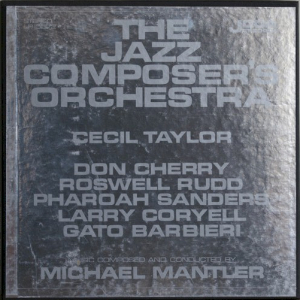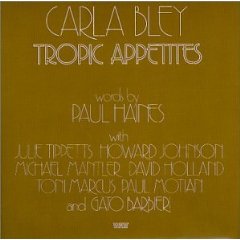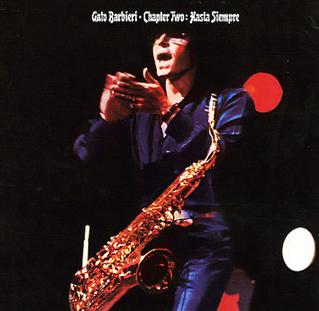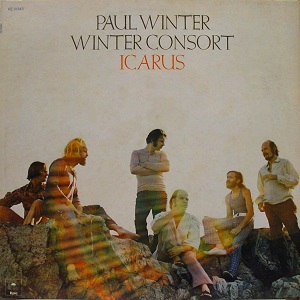
Pretzel Logic is the third studio album by American rock band Steely Dan, released by ABC Records on February 20, 1974. It was recorded at the Village Recorder in West Los Angeles, California, with producer Gary Katz. The album was Steely Dan's last to be made and released while the group was still an active touring band, as well as the final album to feature the band's full quintet-lineup of Becker, Fagen, Denny Dias, Jim Hodder, and Jeff "Skunk" Baxter, though it also features significant contributions from many prominent Los Angeles-based studio musicians.

The World Is a Ghetto is the fifth album by American band War, released in late 1972 on United Artists Records. The album attained the number one spot on Billboard, and was Billboard magazine's Album of the Year as the best-selling album of 1973. In addition to being Billboard's #1 album of 1973, the album was ranked number 444 on Rolling Stone magazine's original list of the 500 greatest albums of all time. The title track became a gold record.

Hymn of the Seventh Galaxy is a studio album by American jazz fusion band Return to Forever. It was released in October 1973 by Polydor. It was the first album not to feature Flora Purim, Airto and Joe Farrell, and marked a shift away from the largely acoustic fusion they created. Drummer Lenny White and guitarist Bill Connors make their first appearances with the group. Connors would leave shortly after the albums release.

Welcome is the fifth studio album by Santana, released in 1973. It followed the jazz-fusion formula that the preceding Caravanserai had inaugurated, but with an expanded and different lineup this time. Gregg Rolie had left the band along with Neal Schon to form Journey, and they were replaced by Tom Coster, Richard Kermode and Leon Thomas, along with guest John McLaughlin, who had collaborated with Carlos Santana on Love Devotion Surrender. Welcome also featured John Coltrane's widow, Alice, as a pianist on the album's opening track, "Going Home" and Flora Purim on vocals. This album was far more experimental than the first four albums, and Welcome did not produce any hit singles.

Spectrum is the debut solo album by jazz fusion drummer Billy Cobham.

Liberation Music Orchestra is a band and jazz album by Charlie Haden released in 1970, Haden's first as a band leader.

The Jazz Composer's Orchestra is a 1968 album by the Jazz Composer's Orchestra recorded over a period of six months with Michael Mantler as composer, leader and producer. Many of the key figures in avant-garde jazz from the time contributed on the album including Don Cherry, Pharoah Sanders, Gato Barbieri, Larry Coryell, Roswell Rudd, and Carla Bley. The album's finale features a two-part concerto for Cecil Taylor and orchestra.

Fort Yawuh is a jazz album by American pianist and composer Keith Jarrett. Originally released in 1973 by Impulse! Records, it marks the beginning of the label’s relationship with Jarrett. Recorded live at the Village Vanguard on February 24, 1973 by Jarrett's "American Quartet": Dewey Redman on tenor saxophone, Charlie Haden on acoustic bass, Paul Motian on drums, plus percussionist Danny Johnson. The title of the album is an anagram of "Fourth Way," a reference to George Gurdjieff's fourth path of self-awareness.

Tropic Appetites is a jazz album by Carla Bley released in 1974, following her debut Escalator over the Hill. The lyrics are contributed by Bley's friend Paul Haines, based on his journeys to Southeast Asia in the preceding years. Unlike on the orchestral Escalator, the band is an octet, with Julie Tippetts as lead vocalist.

The Ear of the Behearer is an album by American jazz saxophonist Dewey Redman featuring performances recorded in 1973 for the Impulse! label. The CD reissue added four performances from Coincide (1974) as bonus tracks.

A Genuine Tong Funeral is an album by vibraphonist Gary Burton featuring compositions by Carla Bley recorded in 1967 and released on the RCA label in 1968. It features Burton with Bley herself on keyboards and conducting an expanded ensemble consisting of trumpeter Michael Mantler, trombonist Jimmy Knepper, tenor saxophonist Gato Barbieri, soprano saxophonist Steve Lacy, baritone saxophonist Howard Johnson, guitarist Larry Coryell, bassist Steve Swallow and drummer Bob Moses.

Introducing the Eleventh House with Larry Coryell is the debut album by The Eleventh House, released in 1974 by Vanguard Records.

Chapter Two: Hasta Siempre is a studio album by Argentine tenor saxophonist and composer Gato Barbieri. It was released in 1974 by Impulse! Records. The album was re-released in 1997 as part of Latino America, a double CD that also included the album Chapter One: Latin America along with unreleased tracks.

Chapter Three: Viva Emiliano Zapata is an album by Argentinian saxophonist and composer Gato Barbieri released on the Impulse! label.

Chapter Four: Alive in New York is a live album by Argentinian saxophonist and composer Gato Barbieri featuring released on the Impulse! label.

Icarus is the fourth album by American musical group Paul Winter Consort. It was recorded in 1971 for the Epic Records label and released in 1972. It was re-released by Epic in 1978 and by Living Music in 1984. The album was produced by George Martin.

Fénix is an album by Argentinian jazz composer and saxophonist Gato Barbieri featuring performances recorded in 1971 and first released on the Flying Dutchman label.

Bolivia is a live album by Argentinian jazz composer and saxophonist Gato Barbieri featuring performances recorded in New York in 1973 and first released on the Flying Dutchman label.

The Third World is an album by Argentinian jazz composer and saxophonist Gato Barbieri featuring performances recorded in 1969 and first released on the Flying Dutchman label.

Under Fire is an album by Argentinian jazz composer and saxophonist Gato Barbieri featuring performances recorded in New York in 1971 and first released on the Flying Dutchman label in 1973.




















